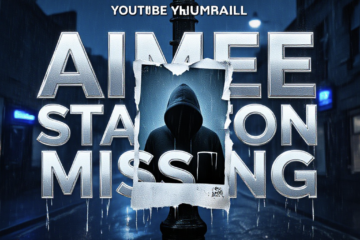Christmas is a time of joy and celebration, but it can also be a time of temptation and impulse. Many people may be tempted to buy a cute puppy as a gift for their loved ones, but they may not realise the consequences of their actions. Buying a Christmas puppy could not only harm the animal, but also fund organised criminal networks that exploit dogs and people.
The dark side of the puppy trade
According to the Scottish SPCA, the demand for puppies has increased dramatically during the pandemic, as people seek companionship and comfort. However, this has also created a lucrative market for unscrupulous breeders and dealers, who often operate across borders and use fake identities and documents to sell sick and poorly bred puppies.
The Scottish SPCA’s special investigations unit has rescued over 150 puppies from the illegal puppy trade since January 2020, and estimates that the trade is worth over £13 million a year in Scotland alone. The charity warns that many of these puppies are bred in horrific conditions, without proper care, socialisation or veterinary treatment. Some of them may carry diseases or genetic defects that could affect their health and behaviour later in life.
The illegal puppy trade is also linked to other forms of organised crime, such as human trafficking, money laundering and drug smuggling. The Scottish SPCA says that some of the people involved in the trade are part of larger criminal networks that exploit vulnerable people, such as migrants, asylum seekers and homeless people, to transport and sell the puppies.
The risks of buying a Christmas puppy
Buying a Christmas puppy may seem like a good idea, but it could also be a risky and irresponsible decision. Not only could you be supporting the illegal puppy trade and its associated crimes, but you could also end up with a puppy that is not suitable for your lifestyle, budget or expectations.

Puppies are not toys or accessories, but living beings that require a lot of time, attention, training and care. They are not cheap either, as they need regular vaccinations, worming, flea treatment, microchipping, neutering, grooming, food, toys and insurance. According to the PDSA, the average lifetime cost of owning a dog can range from £6,500 to £17,000, depending on the size and breed of the dog.
Puppies also need a stable and suitable environment to grow and thrive. Christmas is not the best time to introduce a new puppy to your home, as it can be stressful and overwhelming for them. There may be loud noises, unfamiliar people, decorations, presents and food that could pose a danger or a distraction for the puppy. The puppy may also suffer from separation anxiety when the festive season is over and the routine changes.
How to avoid the illegal puppy trade
If you are thinking of getting a puppy, you should do your research and plan ahead. You should not buy a puppy on a whim or as a surprise gift, but make sure that you and your family are ready and committed to take on the responsibility of owning a dog for the next 10 to 15 years.
You should also avoid buying a puppy online or from a pet shop, as these are the most common sources of the illegal puppy trade. Instead, you should look for a reputable breeder or a rescue centre that can provide you with the history, health and behaviour of the puppy. You should always see the puppy with its mother and littermates, and ask for proof of vaccinations, microchipping and health checks.
You should also be wary of any signs that the seller is trying to deceive you, such as:
- Offering to deliver the puppy to your home or meet you in a public place
- Asking for a deposit or full payment before you see the puppy
- Giving vague or inconsistent answers about the puppy’s origin, age, breed or health
- Providing fake or incomplete paperwork or certificates
- Selling the puppy for a very low or high price
- Having multiple breeds or litters of puppies available
- Being reluctant to let you see the puppy’s living conditions or interact with the puppy
If you suspect that someone is involved in the illegal puppy trade, you should report them to the Scottish SPCA, the police or your local authority. You can also check the Scottish Government’s website for more information and advice on buying a puppy.
The benefits of adopting a rescue dog
If you are looking for a dog to join your family, you may want to consider adopting a rescue dog instead of buying a puppy. There are many benefits of adopting a rescue dog, such as:
- You are giving a second chance to a dog that may have been abandoned, abused or neglected
- You are helping to reduce the number of unwanted dogs in shelters and the demand for the illegal puppy trade
- You are saving money on the initial cost of buying a puppy and its associated expenses
- You are getting a dog that is already vaccinated, microchipped, neutered and health checked
- You are getting a dog that is more likely to be house-trained, socialised and well-behaved
- You are getting a dog that is more suited to your lifestyle, personality and preferences, as the rescue centre can match you with the best dog for you
There are many rescue centres and charities in Scotland that have dogs of all ages, breeds and sizes waiting for their forever homes. You can visit their websites or social media pages to see the dogs available for adoption, or contact them to arrange a visit. Some of the rescue centres and charities in Scotland are:
- Scottish SPCA
- Dogs Trust
- Edinburgh Dog and Cat Home
- Scottish Greyhound Sanctuary
- Staffie Smiles Rescue
Buying a Christmas puppy may seem like a festive gesture, but it could have serious consequences for the puppy, the buyer and the society. Before you buy a puppy, you should think twice and do your homework. Alternatively, you could adopt a rescue dog and make a difference in their life and yours.


















